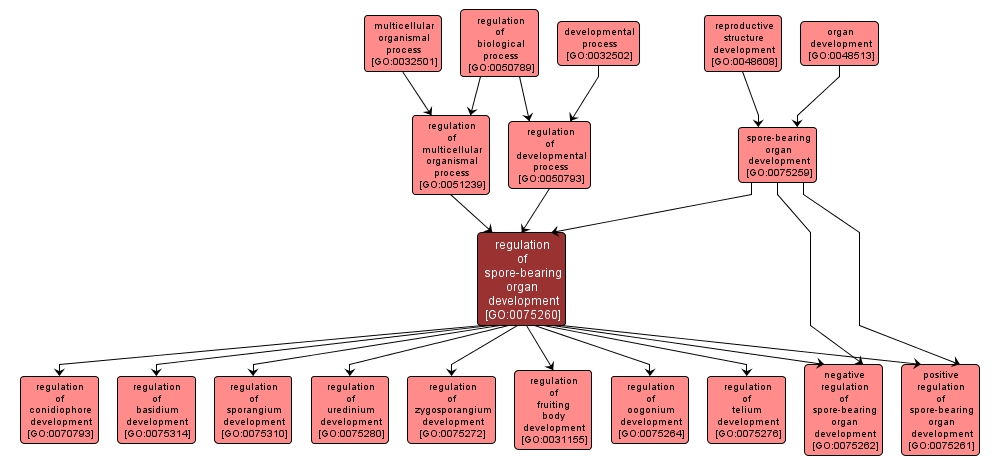GO TERM SUMMARY
|
| Name: |
regulation of spore-bearing organ development |
| Acc: |
GO:0075260 |
| Aspect: |
Biological Process |
| Desc: |
Any process that modulates the frequency, rate or extent of spore-bearing organ development, a process by which hyphae grow into special aggregates called fruiting bodies that produce new spores. |
|

|
INTERACTIVE GO GRAPH
|














